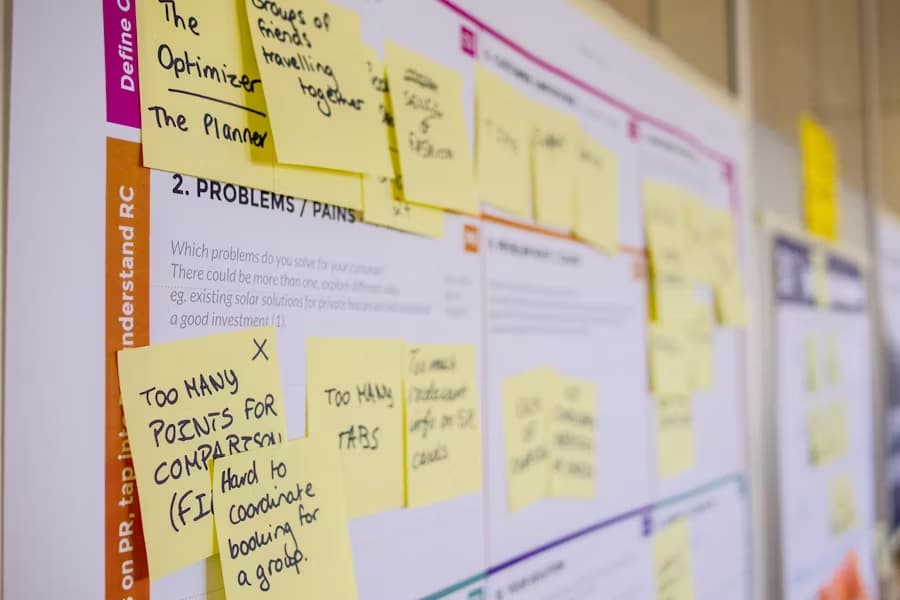Did you realize that on any given day, the typical individual invests more than two hours in activities that offer little contribution to their well-being or objectives? That accumulates to a staggering 730 hours annually—nearly a whole month squandered! In today’s dynamic society, where efficiency is lauded and time equates to money, the toll of time squandering has surged to unprecedented heights.
As we delve into the notion of “time wastage,” we’ll uncover its subtle yet profound effects on our lives, dreams, and overall contentment. Throughout this article, we shall probe the underlying causes of time squandering and its potential ramifications. Most importantly, we’ll furnish you with potent methodologies to reclaim your most precious commodity.
Prepare to seize command of your time and guide your life with greater intentionality. In the ensuing segments, I’ll deconstruct the phenomenon of time wastage and offer pragmatic insights to assist you in optimizing every fleeting instant.
Key Habits and Activities Resulting in Time Misuse
In the present high-speed era, distractions and alluring disruptions are around every corner. It’s not unusual to watch precious minutes or even hours slip away unnoticed while engaged in seemingly harmless activities. This article will shed light on some of these commonly encountered activities, unpacking their deceptive nature and eliciting understanding about how they secretly devour your valuable time.
Social Media: The Endless Scroll
In the age of digital connectivity, platforms like Facebook, Instagram, Twitter, and TikTok have carved out a seemingly indispensable place in our daily routines.
As we endlessly scroll down social media feeds, we consume an abundance of content. However, most of this content is merely entertaining and often lacks substance or value. The constant bombardment of notifications coupled with the platforms’ “infinite scroll” design is crafted to capture our attention, making it all too easy to lose track of time. Here are some points to contemplate:
- The average person spends approximately 2 hours and 22 minutes per day on social media;
- This daily immersion in social media totals up to a staggering 34 days per year!
Browsing the Web Without a Compass
The internet is an enormous repository of information, offering access to limitless resources at our fingertips. However, this vastness can also become a cavernous pit of distractions.
Casual, aimless web surfing – hopping from one site to another without a defined objective – often results in hours of unproductive browsing. This lack of focus and direction can lead you down online rabbit holes that yield little to no valuable information. Here’s a glimpse of how widespread this issue is:
- Studies show that the average worker spends about an hour of their workday aimlessly surfing the web;
- This accumulates to roughly 12.5% of their yearly work time being spent unproductively.
So, the crux lies in understanding these time-wasting tendencies and devising strategies to counteract them, unlocking potential for greater productivity and success.
Prolonged Procrastination: The Silent Thief of Time
Procrastination, an all-too-familiar adversary, is a notorious time-waster and productivity killer. Frequent procrastination stems from an intent to avoid discomfort, unease, or tedium that some tasks inherently carry. This delay tactic creates a deceptive illusion of freed-up time, only to later cause a frantic rush to complete the postponed tasks under the pressure of looming deadlines. Key insights into procrastination include:
- Roughly 20% of people identify themselves as chronic procrastinators;
- High procrastinators have a 3-fold higher rate of heart disease than low procrastinators.
Some practical tips to combat this pervasive habit are:
- Break down larger tasks into manageable components;
- Set achievable deadlines for each task;
- Reward oneself upon successful completion of tasks.
Multitasking: A Hyped Productivity Myth
Multitasking, often hailed as a skill in today’s efficiency-driven world, is actually a deceptive trap that can hamper productivity. Juggling multiple tasks concurrently not only drains mental energy but also eats away time due to context-switching overhead, i.e., the time consumed by the brain to refocus every time it shifts from one task to another. Appreciating this counter-productive effect is essential.
- Studies reveal that multitasking can reduce productivity by as much as 40%;
- Frequently multitasking elevates stress levels and induces a false sense of constant busyness.
Recommendations to circumvent the pitfalls of multitasking include:
- Embrace single-tasking: Concentrate on one task at a time;
- Prioritize tasks: Identify the tasks that require immediate attention;
- Schedule breaks: Adequate breaks between tasks can enhance productivity and maintain focus.
Understanding the Detriments of Time-Wasting Activities:
These seemingly harmless activities often transform into significant time-wasters due to several reasons:
- Absence of Objectives: Frequently, these actions are performed aimlessly, without any set goals or targets in mind, culminating in a squandering of time with no tangible accomplishments;
- Diminished Efficiency: Such activities, while momentarily gratifying, can drain mental energies and focus, impeding the prompt and proficient completion of priority tasks;
- Psychological Allure: Activities like endlessly scrolling social media, aimless web surfing, procrastination, and multitasking have an irresistible appeal that keeps us engrossed far beyond our initial intentions;
- Sidetracked Priorities: Time-wasting habits distract us from significant tasks and objectives, resulting in setbacks and hindering progress in various facets of our life.
Recognizing these widespread time-draining behaviors is the introductory step towards curtailing their influence. By acknowledging and understanding these habits, we can formulate strategies to manage and enhance our time efficiency.
Some actionable tips might include:
- Setting Clear Goals: Have a defined objective for each task to guide your focus and keep you on track;
- Allocating Dedicated ‘Break Times’: Schedule short intervals for non-work related activities like social media or web browsing instead of mindlessly succumbing to them throughout the day;
- Practicing Mindfulness: Stay present and aware of your actions to resist falling into the trap of time-wasting habits;
- Prioritizing Essential Tasks: Identify the tasks that are of utmost importance and allocate your time and energies accordingly.
Implementing these strategies can help combat the detrimental effects of time-wasting activities and pave the way to improved productivity and success.
The Psychological Ripple Effects of Time Misuse
Mismanagement of time isn’t a mere squandering of precious minutes; it can echo into our mental and emotional spheres, significantly influencing various aspects of our lives. This section aims to unravel the intricate ramifications that time wasting can inflict on our psyche.
Mental and Emotional Repercussions of Time Wasting
Squandering time can trigger a series of emotions and psychological responses, including:
- Inevitable Guilt: Investing hours in fruitless activities yields guilt. The realization that time could have been better utilized, particularly when there are looming tasks or goals, conjures remorse. This feeling can burden our mental health, seeding self-reproach and discontent;
- Mounting Frustration: Upon recognizing recurring patterns of unnecessary time consumption, frustration can ensue. The disgruntlement stems from insufficient self-discipline and the perceived incapacity to break the shackles of time-wasting habits;
- Creeping Regret: As time elapses, and missed opportunities or potential progress comes into focus, regret can emerge. Reflecting on the misuse of time sparks a desire for a different time investment strategy. While regret can serve as a potent catalyst for transformation, it can also breed emotional turmoil.
Strategies for Mitigating the Psychological Impact
To alleviate these emotional consequences, consider the following strategies:
- Mindfulness Practice: Engaging in mindfulness can enhance your awareness and improve focus, helping you resist the allure of time-wasting habits;
- Time Management Techniques: Techniques such as the Pomodoro Technique or time blocking can enable effective time utilization, reducing feelings of guilt or regret;
- Self-Compassion: Being kind to yourself when mistakes are made can reduce feelings of guilt and regret, fostering personal growth and resilience. Remember, everyone misuses time occasionally. It’s part of being human.
By heads-on addressing these psychological impacts and integrating behavior modification strategies, we can reshape our relationship with time, enhancing efficiency, productivity, and personal satisfaction.
Impact on Self-Belief and Self-Control: Unpacking the Hidden Costs of Time Misuse
The repercussions of wasting time extend far beyond the evident loss of productivity, influencing core aspects of self-concept like self-belief and self-regulation:
Self-Belief: The Undermining Effect of Time-Wasting
Repeated instances of time squandering can chip away at self-belief. An individual may start questioning their capabilities and self-worth as they perceive themselves falling short of achieving desired goals. This self-doubt can ignite a detrimental cycle where dwindling self-belief fuels further time mismanagement.
The effects of time-wasting on self-belief include:
- Erosion of Confidence: Failures in time management can lead to diminished self-confidence, inhibiting the willingness to undertake tasks or overcome challenges;
- Creation of Self-Doubt: Regular unproductive habits can spark doubts about personal capabilities, negatively impacting the overall morale;
- Fueling Fear of Failure: The constant cycle of time-wasting and unfulfilled tasks gradually builds a fear of failure, which can be a significant obstacle in the path of personal growth.
Self-Control: The Silent Casualty of Time Misuse
The continuous engagement in unproductive activities chips away at self-discipline. Over time, perpetuated lack of control over personal choices can make it progressively challenging to muster the resolve to tackle meaningful tasks or adhere to a productive routine.
The impact on self-discipline includes:
- Deterioration of Willpower: Habitual time-wasting weakens the individual’s will to resist distractions, impacting their productivity and focus;
- Reinforcing Unproductive Behaviour: Regularly succumbing to time-wasting activities bolsters these unproductive habits, making it harder to break free from the cycle;
- Obstacle to Personal Growth: A lack of self-discipline hinders the ability to develop new skills, learn, or improve, affecting personal and professional growth.
By comprehending these psychological impacts, we uncover compelling reasons to combat time-wasting habits. The quest to manage time effectively isn’t just about productivity; it’s also about safeguarding mental and emotional health, upholding self-belief, and cultivating self-discipline.
Digital Aids: Harnessing Technology to Curtail Time Misuse
In the era of technological advancements, various digital tools can be harnessed to mitigate time wastage and enhance productivity. With a focus on long-term efficiency over short-lived diversions, these tools can be instrumental in reshaping habits and achieving set objectives.

Let’s delve into the world of technology and uncover the arsenal of digital aids designed to supercharge productivity and promote effective time utilization.
Productivity Enablers: Task Management Applications
Task management applications like Todoist, Trello, and Asana are digital powerhouses that facilitate the efficient organization and tracking of tasks. They offer a comprehensive workspace to manage tasks effectively. Here’s how these apps can revolutionize your routine:
- Task Organization: Detail tasks, list subtasks, set priorities, and assign deadlines. These apps provide a centralized platform to manage all tasks;
- Progress Tracking: Monitor task completion, track time spent, and gauge productivity. These features help identify patterns and areas for improvement;
- Collaboration: Collaborate with team members, delegate tasks, and keep everyone on the same page, making teamwork more seamless and efficient.
Your Virtual Personal Assistant: Calendar Applications
Calendar applications like Google Calendar or Microsoft Outlook serve as virtual personal assistants that facilitate scheduling and time management. Utilizing these apps can streamline your routines and ensure punctuality. Some of the benefits include:
- Scheduling: Schedule appointments, set reminders for meetings, and never miss an important deadline. Assimilate all important events in one place;
- Device Synchronization: Sync your calendars across different devices for convenient access. Be aware of your schedule anywhere, anytime;
- Integration: Most calendar apps can be integrated with other productivity tools, offering a united ecosystem for all productivity-related aspects.
With the appropriate use of these technological aids, it is possible to break free from the shackles of time mismanagement and pave the way for a more productive and successful future.
Maximizing Efficiency: The Role of Time Tracking and Note-Taking Applications
In an age where time is becoming ever more precious, tracking its use and optimizing its efficiency are critical to achieving productivity and success. Digital tools such as Time Tracking Softwares and Note-Taking Apps can provide invaluable assistance in this pursuit.
Time Tracking Softwares: Your Personal Time Auditors
Software like Toggl or RescueTime acts like personal time auditors, offering an in-depth breakdown of your daily activity distribution. The benefits of using such tools include:
- Time Audit: Gauge how you’re spending your time. Identify the activities that consume the most time for efficient management;
- Productivity Evaluation: Understand what times of the day you’re most productive. Align your critical tasks with these high productivity windows.
Note-Taking Apps: Your Personal Digital Notepad
Applications like Evernote or Notion can act as your digital notepad. They help maintain organized and easily retrievable notes, enriching your workflow with the following advantages:
- Idea Capturing: Instantly jot down emergent ideas, eliminating the chances of missing valuable thoughts;
- Project Management: Create project notes, manage to-do lists, and maintain a personalized workspace.
And while striving for productivity, do not neglect the importance of regular breaks. Scheduled breaks can rejuvenate your focus, sustain mental agility, and aid endurance. Remember that effective time management isn’t just a productivity hack; it’s a life-enhancing strategy and a stepping stone toward long-term triumph.
Conclusion
In conclusion, understanding the gravity of time wastage empowers us to reevaluate our daily choices and reclaim control over our schedules. By acknowledging the significant impact of seemingly trivial activities on our overall well-being and aspirations, we can adopt strategies to maximize productivity and fulfillment. Remember, every moment is an opportunity to steer our lives with purpose and intentionality. Let’s embrace the challenge of utilizing our time wisely, ensuring that each day is a step closer to our goals and a fulfillment of our deepest aspirations.



